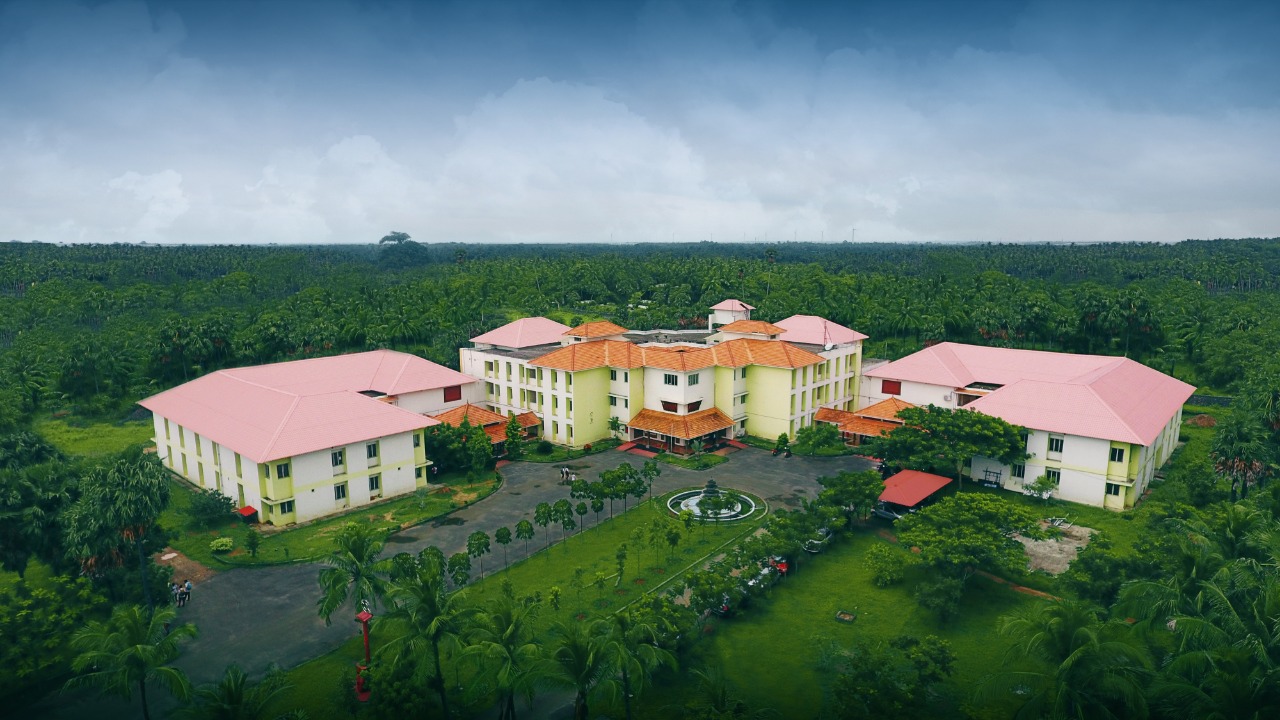
The Department of Computer Science and Engineering at the Ahalia School of Engineering and Technology, Palakkad was started in the year 2012 at the time of starting of the engineering college and provides an outstanding academic environment complimented by excellence in teaching. The department offers B.Tech degree. The Department has a comprehensive syllabus on topics covering all the aspects of computer hardware and software with an emphasis on practical learning. The course structure includes courses on latest topics to equip our students with the latest developments in computer science and engineering.
Vision
To develop engineers with knowledge and computing skills to become successful in their profession and service to the society.
Mission
To practice effective teaching-learning methods that would ensure the production of quality graduates.
To expose students and faculty to advancements in the field of computer science and engineering through workshops, seminars, industrial collaboration, etc….
To promote an understanding of other branches of knowledge through interdisciplinary research and projects.
To develop a strong sense of ethics in the students and emphasize awareness about the social and legal issues.
Programme Educational Objectives (PEOs)
PEO 1 – The main objective of the department is to provide extensive knowledge and a substantial foundation in mathematics, engineering, basic science and fundamentals to the students that would help them to solve computing problems and also to motivate them towards research which serves our nation.
PEO 2 – In addition to helping the students achieve proficiency in the curriculum specified by the University of Calicut/ Kerala Technological University, the department also aims at introducing the students to the latest advancements in the field of computer science and engineering.
PEO 3 – To train the students for their careers in various sectors and also to introduce them to entrepreneurship.
PEO 4 -To establish a comprehensive understanding of interdisciplinary engineering.
PEO 5 -To practice effective and workable teaching learning methodologies that would ensure the production of quality graduates.
PEO 6 -To enable the students and the faculty to avail the benefits of being affiliated with professional societies.
PEO 7 -To develop a strong sense of ethics and integrity in the students graduating from the department and also to give them awareness about the other social and legal issues relevant to the field.
Programme Outcomes (POs)
PO 1: Engineering knowledge: Apply the knowledge of mathematics, science, engineering fundamentals, and an engineering specialization to the solution of complex engineering problems.
PO 2: Problem analysis: Identify, formulate, review research literature, and analyze complex engineering problems reaching substantiated conclusions using first principles of mathematics, natural sciences, and engineering sciences.
PO 3: Design/development of solutions: Design solutions for complex engineering problems and design system components or processes that meet the specified needs with appropriate consideration for the public health and safety, and the cultural, societal, and environmental considerations.
PO 4: Conduct investigations of complex problems: Use research-based knowledge and research methods including design of experiments, analysis and interpretation of data, and synthesis of the information to provide valid conclusions.
PO 5: Modern tool usage: Create, select, and apply appropriate techniques, resources, and modern engineering and IT tools including prediction and modeling to complex engineering activities with an understanding of the limitations.
PO 6: The engineer and society: Apply reasoning informed by the contextual knowledge to assess societal, health, safety, legal and cultural issues and the consequent responsibilities relevant to the professional engineering practice.
PO 7: Environment and sustainability: Understand the impact of the professional engineering solutions in societal and environmental contexts, and demonstrate the knowledge of, and need for sustainable development.
PO 8: Ethics: Apply ethical principles and commit to professional ethics and responsibilities and norms of the engineering practice.
PO 9: Individual and team work: Function effectively as an individual, and as a member or leader in diverse teams, and in multidisciplinary settings.
PO 10: Communication: Communicate effectively on complex engineering activities with the engineering community and with society at large, such as, being able to comprehend and write effective reports and design documentation, make effective presentations, and give and receive clear instructions.
PO 11: Project management and finance: Demonstrate knowledge and understanding of the engineering and management principles and apply these to one’s own work, as a member and leader in a team, to manage projects and in multidisciplinary environments.
PO 12: Life-long learning: Recognize the need for, and have the preparation and ability to engage in independent and life-long learning in the broadest context of technological change.
Programme Specific Outcomes (PSOs)
PSO 1 – Graduates will apply the knowledge of mathematics and skill of computer science engineering to solve complex problems.
PSO 2 – Graduates will apply appropriate techniques, resources and latest computing tools to solve real world problems.

